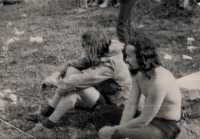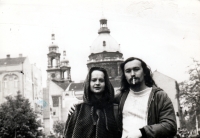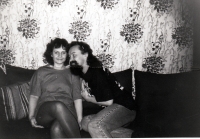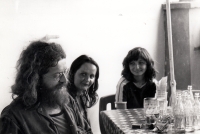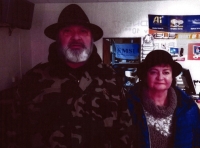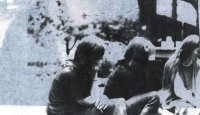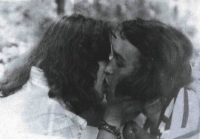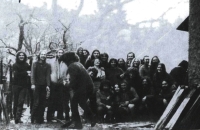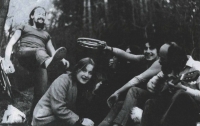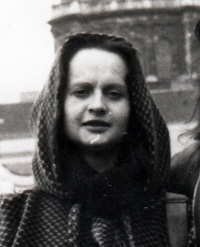I soon realized that there was another way to live
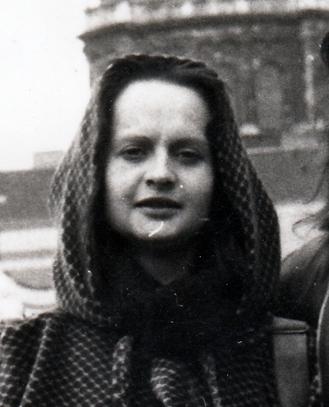
Download image
Zlata Kaprálová, maiden name Rybářová, was born on 10 May 1957 in Hradec Králové as the older of two daughters to Maria, nee. Bakovská and Ladislav Rybář. She lived with her parents and grandmother in nearby Probluz. Her father was a barber, her mother worked in the blue-collar professions. Zlata was brought up mostly by her grandmother. She didn’t finish the first year of hairdressing school because of absenteeism, she started to go among the so-called “máničkas” (i.e. young people with long hair, typically men), looking to find her true self like most teenagers. She ran away from home and struggled for two months, then wandered to a diagnostic institute and then to a borstal in Černovice near Tábor, where she spent a traumatic two years. In the borstal, she trained as a seamstress. After her release, she worked in Nový Bydžov in textile production, and later in the Univerzal company in Prostějov. In 1976 she married Josef Vidrna, a member of the band Avernus, and their son Lukáš was born the same year. She married for the second time in 1978 to Jan Kaprál, a waiter from Prostějov, where the family then lived. They attended illegal music events in Czechoslovakia, and in the 1980s they went to concerts in Hungary. In 1979, they were involved in the transcription and distribution of samizdat publications. In 1980, their younger son Jan was born. In response to their anti-regime activities, their older son Lukáš was taken away from them. He returned home after half a year. After the revolution, Zlata and her husband opened a hospitality business. In 2020, she received the award of a participant in the resistance and opposition to communism. Her husband Jan died in 2009. In 2023, Zlata Kaprálová lived with her boyfriend Emil Juřena in Stražisk near Prostějov.
